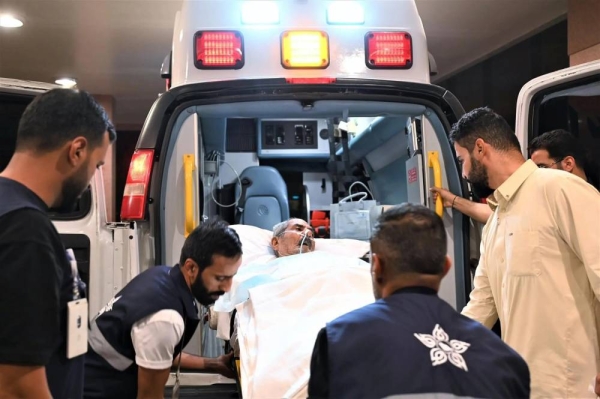The Ministry of Health (MoH) in Saudi Arabia has prioritized the health and well-being of Hajj pilgrims, providing comprehensive health services to over 77,000 individuals during the Hajj season of 1445 H. These services were available from the beginning of Dhu al-Qi’dah to the sixth day of Dhu al-Hijjah. A detailed report released by the MoH showcased the various medical support provided, including services at medical clinics, specialized clinics, and pharmaceutical provisions. Additionally, pilgrims had access to dialysis centers, intensive care units, and isolation units. The ministry also performed 16 open heart surgeries, 200 cardiac catheterizations, and 584 dialysis procedures to ensure the well-being of pilgrims during their spiritual journey.
During the Hajj season, a total of 1,745 pilgrims required admission to hospitals and medical centers to receive necessary health care. The MoH underscored the dedication of the Kingdom’s health system to maintaining high levels of care for pilgrims. This commitment is demonstrated through a skilled team of medical and administrative staff, supported by well-equipped health facilities and centers strategically located in Makkah, Madinah, and the holy sites. These resources are essential in ensuring the safety and comfort of pilgrims throughout their spiritual journey.
The MoH’s focus on providing comprehensive health services during Hajj reflects the government’s commitment to prioritizing the well-being of pilgrims. By offering a wide range of medical support, including specialized clinics, pharmaceutical provisions, and surgical procedures, the ministry aims to address the health needs of pilgrims effectively and efficiently. With the presence of dialysis centers, intensive care units, and isolation units, pilgrims have access to essential medical care to address any health issues that may arise during their pilgrimage.
In addition to providing medical services, the MoH also emphasized the importance of maintaining high-quality care for pilgrims. This commitment is evident through the skilled combination of medical and administrative staff who work tirelessly to ensure the safety and well-being of pilgrims. By upholding the highest standards of care, the Kingdom’s health system is able to effectively address the health needs of pilgrims and provide them with the necessary support to ensure a smooth and safe pilgrimage experience.
The MoH’s comprehensive health services during the Hajj season serve as a testament to the Kingdom’s dedication to ensuring the well-being of pilgrims. By offering a wide range of medical support, including surgical procedures, dialysis services, and intensive care, the ministry is able to effectively address the health needs of pilgrims and provide them with the necessary care to ensure a safe and comfortable pilgrimage experience. With well-equipped health facilities and strategically located centers, pilgrims are able to access essential medical services throughout their spiritual journey, further enhancing their overall pilgrimage experience.
In conclusion, the Ministry of Health’s commitment to providing comprehensive health services during Hajj demonstrates the government’s dedication to ensuring the well-being of pilgrims. By offering a range of medical support, including specialized clinics, pharmaceutical provisions, and surgical procedures, the MoH is able to address the health needs of pilgrims effectively. With the presence of dialysis centers, intensive care units, and isolation units, pilgrims have access to essential medical care to address any health issues that may arise during their pilgrimage. The skilled combination of medical and administrative staff, supported by well-equipped health facilities, ensures the safety and comfort of pilgrims throughout their spiritual journey.










